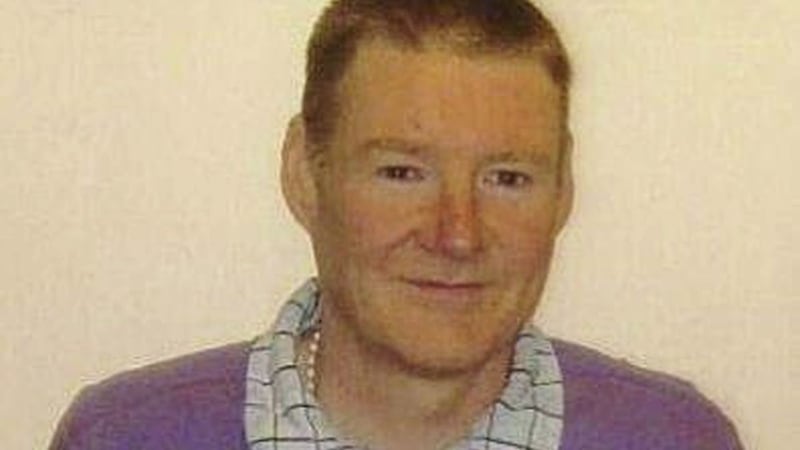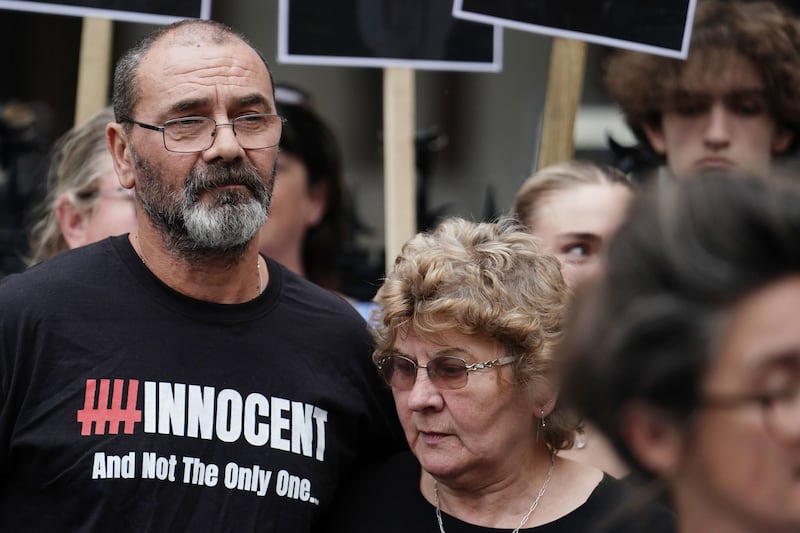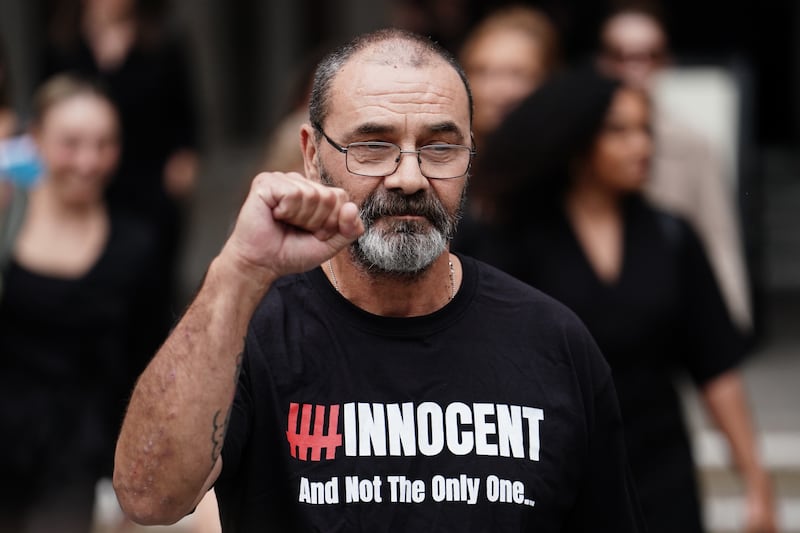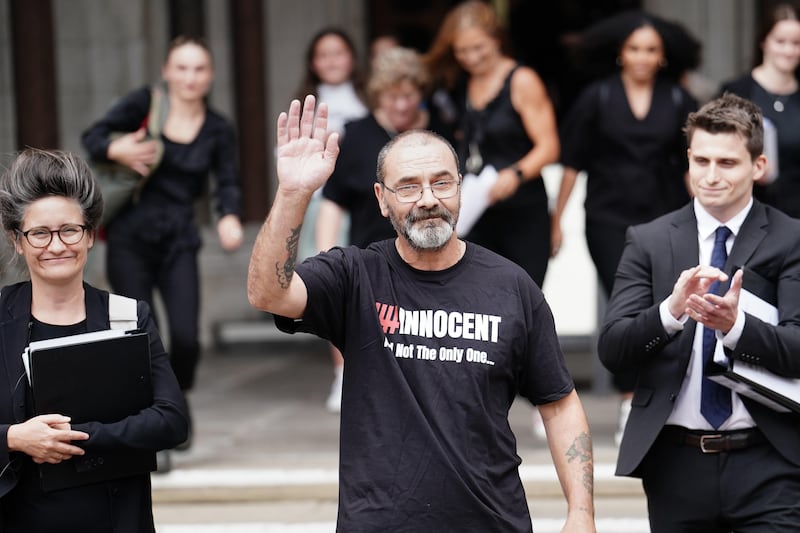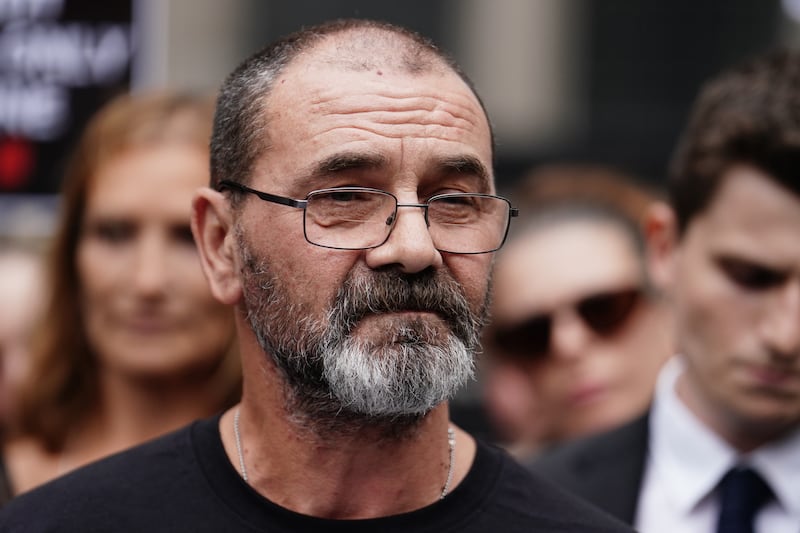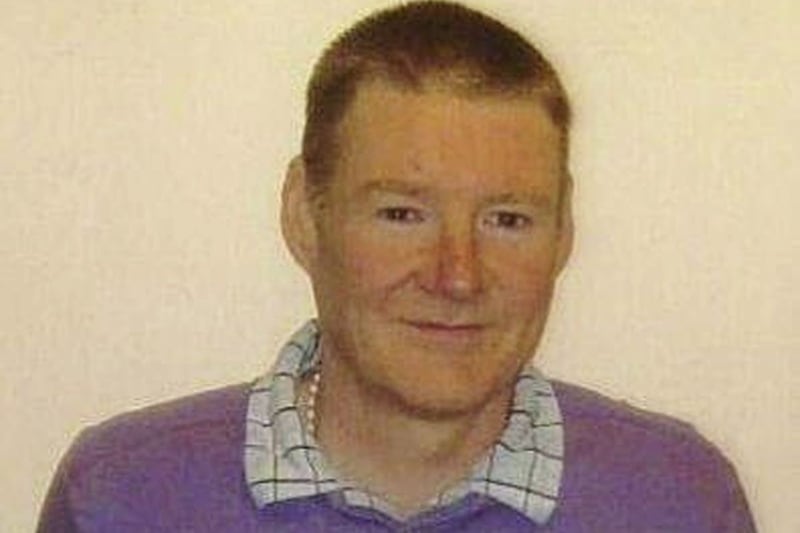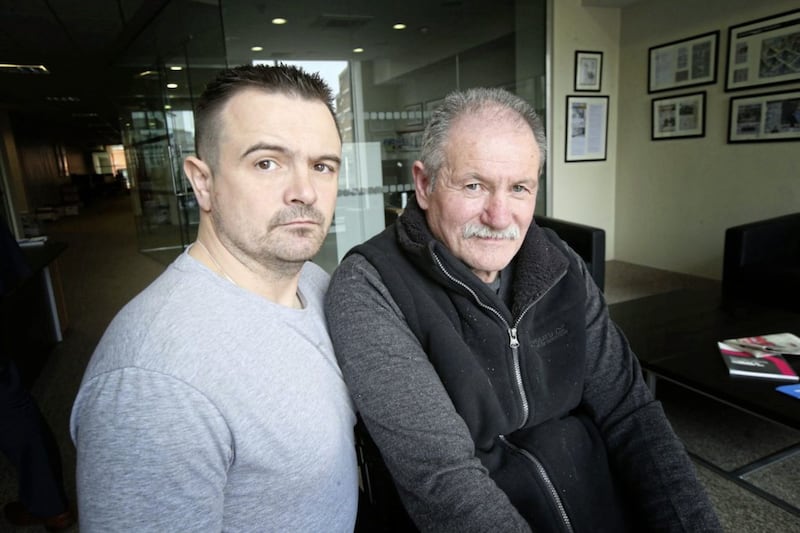A watchdog is set to reopen the case of a man convicted of murdering a PSNI officer over concerns about the role of suspected British agent Dennis McFadden in a campaign to clear his name.
Brendan McConville and John Paul Wootton were convicted of murdering officer Stephen Carroll (48) in Craigavon in March 2009.
It has now emerged that the Criminal Case Review Commission, which examines potential miscarriages of justice, is set to re-open McConville's case after his lawyers threatened legal action.
Although submissions had been made about the alleged role of McFadden in October last year the CCRC rejected an application by McConville's legal team to refer the case to the Court of Appeal.
Lawyers subsequently claimed that the decision was unlawful and signalled their intention to launch a judicial review.
In 2020 Mr McFadden was exposed as a suspected agent after an MI5-led sting targeted the New IRA.
Ten people were arrested in a major surveillance operation codenamed Operation Arbacia.
McFadden is believed by some to have infiltrated several political and campaign groups including the Justice for the Craigavon Two campaign.
The group, which involved Gerry Conlon, who was wrongfully convicted with others of two pub bombings in Guildford in October 1974, was set up to highlight the case of McConville and Wootton.
Mr McFadden regularly attended group meetings during which it is claimed sensitive legal discussions were held with McConville's legal team.
It is believed that McFadden also visited McConville in Maghaberry Prison.
It is understood the suspected agent was directly involved in preparations ahead of a 2014 appeal launched by McConville and Wootton, which was unsuccessful.
McFadden is also said to have been a central figure in the establishment of Justice Watch Ireland, a short-lived organisation set up to examine miscarriages of justice.
McConville's solicitor Darragh Mackin, of Phoenix Law, said: "This is a situation whereby an MI5 agent placed himself within the confines of a close family and campaigning circle to ensure that he obtained information with regards to the defence preparations of a high profile murder case."
The solicitor added that "news that the CCRC have now confirmed that their decision not to refer this case to the Court of Appeal has been quashed, and that a fresh consideration of the issues will now follow.
"We intend on engaging with the CCRC in the coming weeks to emphasise the importance on a rehearing of this case in light of the fundamental principles at stake," he said.
It is understood McConville is also represented by former Attorney General John Larkin.
A spokesman for the CCRC said that McConville's legal team were provided with a 'statement of reasons' after the case was not referred to the Court of Appeal last year.
Earlier this year, Mr McConville indicated that he would challenge the CCRC’s decision not to refer his case in the High Court by way of an application for judicial review," he said.
"Having considered the arguments made on Mr McConville’s behalf and to ensure absolute fairness, the CCRC has, in line with its published policy on judicial review, offered to take another look at his case."
"To not order the returning of this case to the Court of Appeal would be an affront to the rule of law and the basic principles of access to justice.”
Mr Carroll died from a gunshot wound to the head as he sat in a police car while attending a 999 call. A brick had been thrown through the window of a house an hour earlier, prompting the occupants to call the PSNI.
McConville is serving at least 25 years after being convicted in 2012 for the murder. Wootton was handed a minimum 14-year term for his part in the killing but this was later increased to 18 years by the Court of Appeal. Both men lost an appeal against their murder convictions in 2014.
They were both also convicted of possession of an AK47 assault rifle and ammunition with intent to endanger life.
Wootton was also found guilty of attempting to collect information likely to be of use to terrorists.
Both men have denied any part in the Continuity IRA attack.
